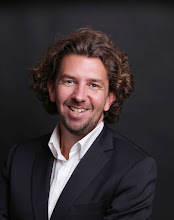
Lyonnaise des Eaux Côte d’Azur subsidiary unveils Aquaviva, one of the world’s first water treatment plants to use ultrafiltration. The plant, which is sited in the Cannes area, is one of the world’s first water treatment plants that uses ultrafiltration modules as well as a membrane bio-reactor (MBR) and prevents the emission of greenhouse gases.
This new generation factory will also be an important carbon-neutral plant and include the largest solar farm in the département (4,000m²). Its treatment process also enables effluent to be re-used for watering green spaces and for street cleaning.The new station which will serve 8 different communes, represents a budget of 77 M€ and should be finalised by 2011.

High performance treatment allows wastewater to be reused
The use of ultra filtration membranes and a biological reactor (Bioreactor with membranes) to purify wastewater is the most modern technology for treating wastewater in the world. Its purification efficiency exceeds regulatory standards and will meet future standards for "water quality suitable for swimming.” Marine flora and fauna will thus be preserved and a monitoring of biodiversity (fish on the shoreline, posidonia meadows) will help track progress. Treated water will also be reused to water landscaped areas or to clean roadways.
A plant integrated into a coastal tourist environment
Aquaviva is to be built on the shoreline at the site of the current treatment plant and will be perfectly integrated into its coastal tourist environment. It will not emit any unpleasant odors or noise nor will it be unsightly. Each year, the Cannes region attracts 2.5 million tourists, so an unobtrusive work site will be put up during construction. The plant’s operation will be audited by a certification organization in order to attain the ISO 14001 environmental management standard.
Greenhouse gas emissions completely neutralized
Aquaviva will be completely Carbon Neutral®. Greenhouse gases will make up only 269 equivalent tons of carbon annually, i.e., 90% less than the current plant. These emissions will by completely offset and Aquaviva will use different procedures and technologies to achieve this. The treatment plant will have 4,000 sq. m of solar panels making it the largest solar farm project in the Maritime Alps.
Drying the sludge resulting from wastewater treatment will also contribute to the offsetting effects. Dry sludge will then be treated and recycled as natural fertilizer for agriculture in the region. Work done by Degrémont and GTM will start in 2009 as soon as a construction permit is obtained and will be completed in 2011. And in nearby Golfe Juan-Vallauris, another Lyonnaise des Eaux treatment plant, which meets HQE (High Environmental Quality) standards, was inaugurated on May 25. Known as “Nobilis” after a rare Mediterranean shellfish, the plant complies with the latest European standards and has been awarded the highest 4-star classification.
Source : Lyonnaise des eaux








No comments:
Post a Comment